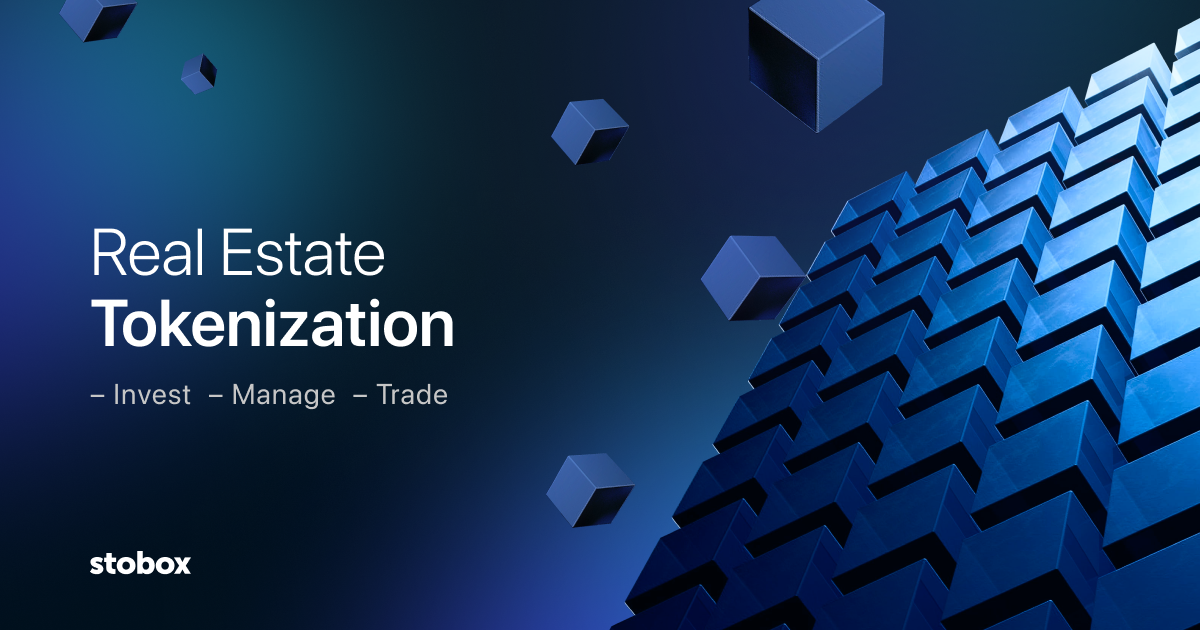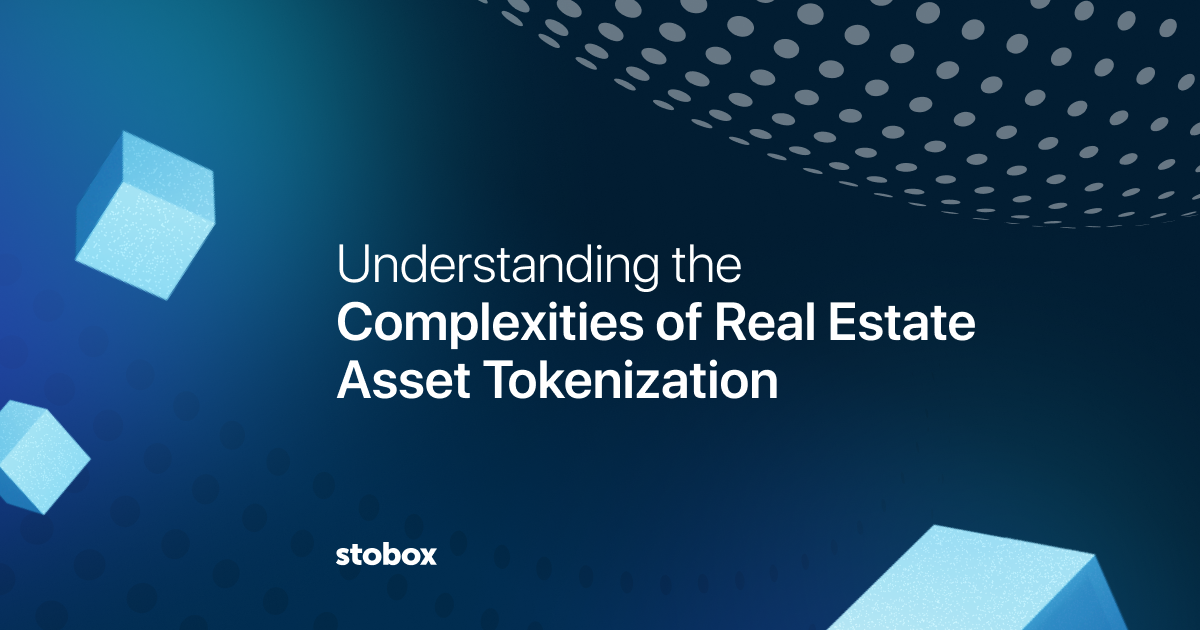Latest news about Bitcoin and all cryptocurrencies. Your daily crypto news habit.
Real estate asset tokenization offers a revolutionary way to democratize investments in property assets. It's a process that involves issuing blockchain-based tokens to represent a share of ownership in a real estate asset, making it more accessible and affordable to a wider investor base. This article delves into the intricacies of this advanced concept and the advantages it offers to investors and real estate owners alike.
Real Estate Investment Trusts (REITs) and Tokenization
Real Estate Investment Trusts (REITs) are investment vehicles that allow fractional ownership in property assets. However, they come with certain limitations. For instance, REITs are required to distribute high dividends, and they also have limitations concerning the risks they can assume.
Contrastingly, real estate tokens can achieve liquidity using decentralized finance tools without such constraints, offering potentially higher returns. Tokenization reduces the minimum investment threshold, allowing an individual to invest as little as $500, thereby opening doors to a broader investor base.
Basics of Real Estate Tokenization
Contrary to common belief, owning real estate tokens doesn't imply having rights to a specific square meter of the property. Instead, token holders own shares in a Special Purpose Vehicle (SPV), which owns or has a claim to the real estate. This structure increases flexibility and allows for transactions without making expensive changes in the property register, thereby fostering an active secondary market.
The process begins by setting up a holding company in a jurisdiction where blockchain-based securities are recognized. This holding company then explicitly owns the real estate or holds a subsidiary that does. This structure's specifics depend on local legislation, double taxation rules, and should be decided on a case-by-case basis.
Investor Protection in Real Estate Tokenization
Investors' rights in a tokenized real estate asset are safeguarded by corporate legislation, the Commercial Code, the Civil Code, or other relevant laws. The tokens held by investors are recognized securities, providing a claim on the company. Moreover, while purchasing a token, investors sign a token purchase agreement that gives them additional legal protection.
The SPV owning the real estate is obligated to distribute its real estate's cash flows as income to its shareholders or bondholders. Therefore, even if the business underperforms, the property can be sold, the company liquidated, and the proceeds distributed among token holders.
Investors can either have complete ownership rights and voting rights or claim only a part of the revenue generated by the real estate. Legal agreements can be customized to ensure the investors have specific rights as per the SPV's promises.
Advanced Models of Property Tokenization
Two advanced models provide unique solutions to challenges faced in real estate tokenization.
Raise-then-purchase Model
In this model, funds are raised initially through the token offering, and the real estate purchase is made from these funds. This model is helpful when transferring property to a company's balance sheet is expensive. However, a reservation document is required, preventing the property's sale to anyone other than the tokenized SPV during the token offering period.
Segregated Portfolio Company Model
This model is particularly beneficial when tokenizing multiple properties. A Segregated Portfolio Company owns multiple properties, each as a separate portfolio, protecting investors from underperforming properties' risks. Each property represents a different security, allowing investors to claim the cash flows from the respective real estate asset.
Real estate asset tokenization is poised to democratize property investment, leveraging blockchain technology's transparency, accessibility, and security. It offers a unique solution for real estate developers and investors, opening doors to a wider pool of potential investors and an active secondary market.

How does real estate asset tokenization really work?
Real estate tokenization is a process of transforming the value of physical property into a digital token, typically on a blockchain. This cutting-edge technology has the potential to revolutionize the real estate industry by enhancing liquidity, improving security, and reducing transaction costs.
The Mechanics of Real Estate Tokenization
In essence, tokenization involves digitizing the rights to physical property. The process begins with an asset owner deciding to tokenize a particular property. An entity called a Special Purpose Vehicle (SPV) is created, which legally holds the property. The SPV then issues digital tokens on a blockchain that represent shares of the property. Each token stands for a portion of the property's value, and these tokens can be bought, sold, or held just like any other digital asset.
Benefits of Real Estate Tokenization
There are numerous benefits of real estate tokenization. One of the primary advantages is enhanced liquidity. Traditional real estate transactions can be time-consuming and expensive, with significant paperwork and numerous intermediaries involved. By contrast, tokenized real estate can be traded instantly and seamlessly on digital exchanges, thereby enhancing liquidity and reducing transaction costs.
Tokenization also enables fractional ownership of property. In a conventional real estate investment, an individual or entity needs to buy an entire property or a significant share of it. With tokenization, however, a property can be divided into numerous individual tokens, each representing a small fraction of the property. This significantly lowers the barriers to entry, enabling more individuals to invest in real estate.
Security and Transparency
Another significant advantage of tokenization is the enhanced security and transparency it offers. By leveraging the immutability and security features of blockchain technology, tokenization ensures that every transaction and ownership transfer is recorded permanently and transparently on the blockchain. This greatly reduces the chances of fraud or manipulation, thereby increasing investor confidence.
Legal and Regulatory Considerations
Despite the numerous benefits, real estate tokenization also poses new legal and regulatory challenges. It's crucial for the tokenization process to be conducted in compliance with existing securities laws and real estate regulations. To achieve this, many tokenization platforms employ a legal framework known as a Regulation D offering, which exempts the tokens from registration with the Securities and Exchange Commission.
The Future of Real Estate Tokenization
With rapid technological advancement and growing acceptance of digital assets, the future of real estate tokenization looks promising. As regulatory frameworks adapt to these new digital assets, and as more investors and real estate owners recognize the benefits of tokenization, it's likely that we'll see an increasing number of properties being tokenized in the coming years.
Real estate tokenization is a pioneering development that could have far-reaching implications for the global real estate industry. By unlocking new investment opportunities and enhancing the efficiency of property transactions, tokenization has the potential to democratize access to real estate and revolutionize the way we buy, sell, and invest in property.

Conclusion
In conclusion, real estate asset tokenization is the process of converting the value of physical property into a digital token on a blockchain. This process presents a new paradigm for the real estate industry, promising increased liquidity, greater accessibility, enhanced transparency, and improved security. As the world moves further into the digital age, real estate tokenization could become a key trend that reshapes the global real estate landscape.
 🔥
Speak to Stobox Executive Team and get a free consultation on how to tokenize your business with Stobox!
🔥
Speak to Stobox Executive Team and get a free consultation on how to tokenize your business with Stobox!Disclaimer
The views and opinions expressed in this article are solely those of the authors and do not reflect the views of Bitcoin Insider. Every investment and trading move involves risk - this is especially true for cryptocurrencies given their volatility. We strongly advise our readers to conduct their own research when making a decision.
